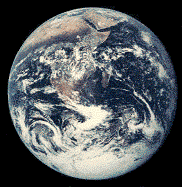I don't often leave comments on the blogs I read, but once in a while I feel compelled to put in my two cents on a topic.
It happened a couple of days ago on Kevin Drum's site (Calpundit--link on the right.) An argument had arisen as to whether or not the democratic presidential nominee needs to win any southern states. I had no intention of participating in the discussion until one poster made a claim that was false and touched on something I wish Americans knew more about: our own history. He said:
NorthEastern "Liberalism" predates all else in this country. This is where our history and heritage lie.Not true. As Americans, we have no claim to a pristine, glorious history.
The first European settlement in North America was the Spanish settlement in St. Augustine, Florida, but since Florida wasn't part of the original thirteen colonies it's not accurate to say that U.S. history started there. U.S. history really started with two British colonies, one in the north and one in the south.
In the 16th century a British scouting expedition named the eastern portion of North America not claimed by Spain "Virginia". In 1606 this territory was divided in half, and "patents" for colonization were given to two companies in England: one in London and one in Plymouth. The London company was given a patent for the southern Virginia territory, and the Plymouth company was given a patent for the northern Virginia territory.
The London company was the first to establish a settlement. In 1607 Jamestown (still part of present day Virginia) was founded by 105 settlers funded by the company. They came looking for gold, but in 1612 John Rolfe (who later married Pocahontas) planted tobacco. In 1614 the first crop of Virginia tobacco was sold in England, where there was already a market for it. As the tobacco fields spread workers were needed, and in 1619 the first group of twenty African slaves was brought to Jamestown on a Dutch ship.
Tobacco was the only "cash crop" for decades, and Virginia, which at one time extended west to the Mississippi River, became the largest, wealthiest, and most populous colony. (Both George Washington and Thomas Jefferson owned plantations in present day Virginia, and they both owned hundreds of slaves.)
The Plymouth company was slower to get a successful colony going. In 1607 a settlement named Popham was started in present day Maine, but the settlers returned to England after about a year. In 1620 the Mayflower arrived in present day Massachusetts, and the Plymouth Colony was born. Of the 102 settlers who came on the Mayflower, 41 were Puritans, who, seeking religious freedom, came indentured in service to the company. The settlers were collectively called Pilgrims. In 1630, 900 more Puritans arrived and the Massachusetts Bay Colony was formed. While being governed as a private company, it was in practice a Puritan theocracy: the status of "freeman" was restricted to church members, and suffrage was based on religion. The colony was largely agricultural and it prospered, but it did not enjoy the economic success of Virginia.
So we were divided into north and south before the first successful settlement was ever established. Religious tyranny prevailed in the north, while the south grew rich tobacco plantations based on slave labor.
A nice short history of the original thirteen colonies, with additional links, can be found here.

Leave a comment